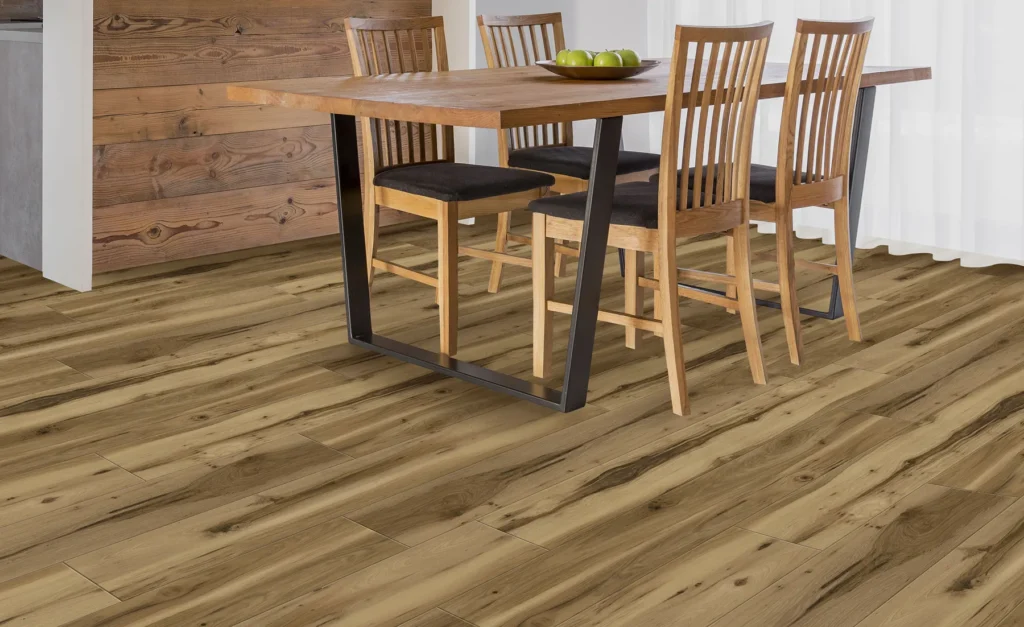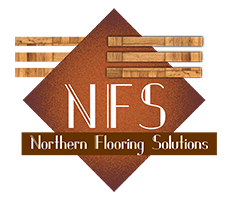
Thicker hybrid flooring can offer unique benefits, but not all options are equal. With variations among different types of hybrid flooring, it’s easy to feel confused or misled if you’re not an expert. In this article, we delve into the truth behind thicker hybrid flooring and explore why it may not always be better.
Generally, Thicker is Better in Hybrids
When the thickness of hybrid flooring boards is the same, the weight per square meter remains constant. However, a 8mm thick board will typically weigh more than a 6mm board if they have the same wear layer and underlay thickness. Thicker boards often have a thicker core, providing additional weight, which offers several advantages:
- The floated floor will be more stable with added weight, reducing bounce and preventing shifting.
- The core’s thickness and weight are more consistent compared to the wear layer.

Let’s Examine the Wear Layer and Core in More Detail.
Durability and Stability:
- Wear Layer: Thicker hybrid floors often come with a thicker wear layer, which can enhance durability and resistance to scratches, dents, and wear over time.
- Core Stability: Thicker planks generally have a more stable core, reducing the likelihood of warping or buckling due to changes in temperature and humidity.
Comfort:
- Underfoot Feel: Thicker flooring can provide a more comfortable feel underfoot, which is particularly beneficial in high-traffic areas or rooms where you spend a lot of time standing, like kitchens.
- Sound Insulation: Thicker planks usually offer better sound insulation, reducing noise transmission between floors and within rooms.
Aesthetics:
- Visual Appeal: Thicker planks can offer a more substantial and high-quality appearance, often mimicking the look of real hardwood more convincingly.
Installation:
- Ease of Installation: Thicker hybrid flooring can sometimes be easier to install, particularly if it includes a click-lock mechanism. However, it can also be heavier and more cumbersome to handle.
- Subfloor Compatibility: Thicker flooring may be more forgiving of minor subfloor imperfections, potentially reducing the need for extensive subfloor preparation.
Cost:
- Price Point: Thicker hybrid flooring tends to be more expensive due to the increased material costs and enhanced features.
- It’s important to weigh the benefits against the higher price to determine if it’s worth the investment for your specific needs.
Applications:
- Residential vs. Commercial Use: Thicker hybrid flooring may be more suitable for commercial applications or areas with heavy foot traffic, where durability is a key concern. For residential use, the decision might hinge more on comfort and aesthetic preferences.
In summary, thicker hybrid flooring can offer several advantages in terms of durability, comfort, and aesthetics, but it often comes at a higher cost. The best choice depends on your specific needs, preferences, and budget. If longevity and a premium feel are priorities, investing in thicker hybrid flooring could be a worthwhile decision.


 0460 001 616
0460 001 616
 info@northernflooringsolutions.com.au
info@northernflooringsolutions.com.au